Civil Liberties, Extraordinary Rendition, Guantanamo, Habeas Corpus, Human Rights, Supreme Court, Torture, Truth to Power
Podcast: Play in new window | Download
Updates:
—
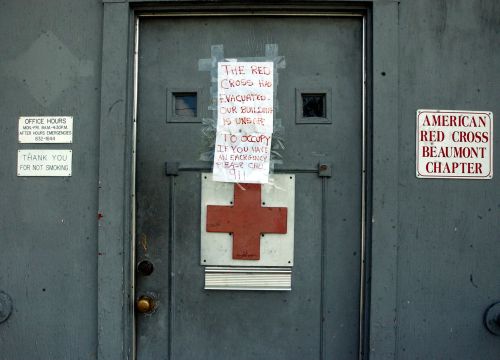

Labor Relations at the American Red Cross and It’s Impact on Employee and Donor Safety (PDF)
Hosts look at a suprising report detailing the cost cutting efforts within America’s premier disaster relief and blood donor organization, the American Red Cross. Award winning Washington based reporter Philip Dine has put together an investigative summary titled – (PDF)Labor Relations at the American Red Cross and It’s Impact on Employee and Donor Safety that enumerates the effects of cut backs that have led to bad labor relations, bungled disaster relief, mishandled blood supplies and federal fines. The investigation examines a far less publicized issue that involves the treatment of Red Cross employees and the impact this has on the organization’s work, with high turnover, younger employees and lower wages.
Philip Dine:
- Over the years, the Feds saw that the Red Cross was not living up to its promises.
- Red Cross labor relations: For years the Red Cross has been intent on degrading the training and expertise of the employees.
- At one point you needed doctors on site for blood drives, then it became registered nurses, then it became nurses on call, and then non-medically trained supervisors.
- It seems that the Red Cross wants to have more management control and lower pay and that basically means a disposable work force.
- Management mess: 10 Executive directors in 12 years.
- High turnover at the top, a budget deficit, despite the main money maker – the blood supply which they get for free. It accounts for 2/3 of revenue. Calling for an audit
- Workers increasingly hired from fast food outlets with no experience, workers see co-workers improperly inserting needles into people. More articles
- I’ve been covering labor for 25 years/ Please contact Philip Dine directly at – philipmdine@aol.com
Guest – Philip Dine author of “State of the Unions: How Labor Can Strengthen the Middle Class, Improve Our Economy, and Regain Political Influence.” Philip Dine is teaching a labor-management course at the George Washington University School of Business this fall. State of the Unions has won honorable mention for best book about labor or work of the past five years from the United Association for Labor Education.
———–
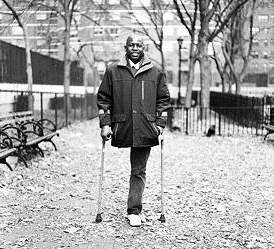

Medical Students Advocate Against Health Professional Participation in Torture
Last year it was confirmed that doctors and psychologists were directly involved in the supervision, design and execution of torture at U.S. military and intelligence facilities. This is a violation of state laws and professional ethics. These “health professionals” that were involved in the torture still hold their professional licenses to practice. Legislation introduced in New York by Assemblyman Richard Gottfried and Senator Tom Duane would reinforce existing ethical and legal responsibilities by prohibiting state-licensed doctors and other health professionals from participating in such practices. The law would also call for legal protection to resist and report any involvement in acts of torture and abuse. Last week, medical students and health professionals descended on Albany to meet with law makers to advocate the passage of this historic legislation. Physicians For Human Rights / When Healers Harm
Dr.Allen Keller:
- If you’re a health professional that participated in torture, you can lose your license.
- Health professionals were front and center and complicit in this policy of torture.
- Medical professionals provided sanitizing and rationalization for those infamous torture memos.
- During water-boarding there would be a doctor there. This is clearly a breach of medical and professional ethics.
- Licenses issued by the state. Torturers relied heavily on medical opinion.
- The state chapter of the New York Psychological Association has endorsed this bill.
- What I believe is that the interrogator looks at the health professional and says, well, if it gets out of hand, the medical professional will stop me.
- Suvivorsoftorture.org – The Bellevue/NYU Program for Survivors of Torture provides comprehensive medical and mental health care, as well as social and legal services to survivors of torture and war traumas and their family members. In the past year alone we provided these multidisciplinary services to more than 600 people from 70 countries.
Guest – Dr. Allen Keller, founder and director of the Bellevue/NYU Program for Survivors of Torture. In addition to serving as a primary care physician for many patients in the Program (Dr. Keller speaks French and Spanish). Dr. Keller oversees and coordinates the provision of medical services for Program patients, working with other primary care physicians and medical specialists affiliated with the program.
———————————————–
Civil Liberties, Criminalizing Dissent, Extraordinary Rendition, Guantanamo, Habeas Corpus, Human Rights, Torture, Truth to Power
Podcast: Play in new window | Download
Updates
—–
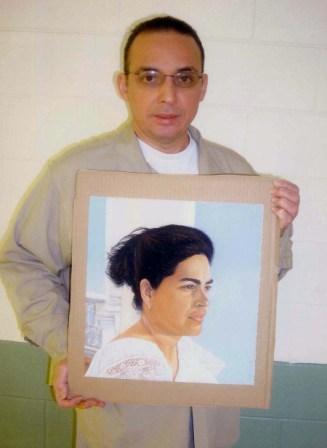
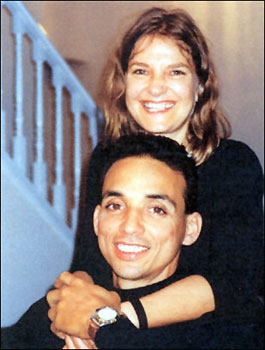
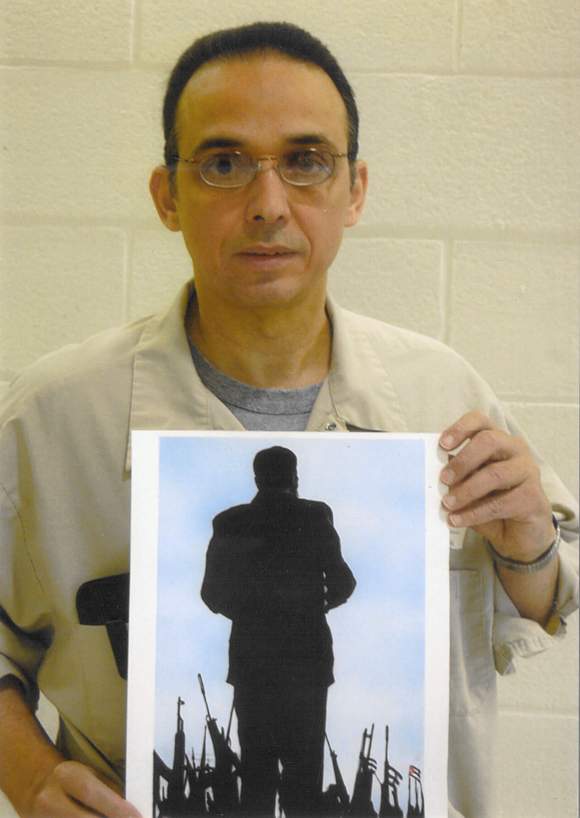
ENCORE: Cuban Five Update: The Re-sentencing of Antonio Guerrero
Earlier this month, Federal Judge Joan A Lenardo replaced the life sentence for Antonio Guerrero, one of the Cuban Five. Mr. Guerrero, a United States citizen, was convicted of spying for Cuba while working at the Naval Air Station in Key West. His sentence was reduced to almost 22 years, which means he could be out of prison in nearly seven years. Mr Guerrero’s attorneys had asked for the sentence to be reduced to 240 months, but Judge Lenardo set it at 262 months.
Mr. Guerrero’s lawyer, Len Weinglass told the New York Times, it was an odd decision, he said “You have a man who was on a military base but who didn’t take a single classified document and no one testified that he injured U.S. national security, but the judge still rejects the prosecutors’ request to lighten the sentence.” Transcript of Hearing
Len Weinglass:
- Antonio Guerrero who I represent, was originally sentenced to life in prison.
- The appellate courts reduced the life sentence for the conspiracy to commit espionage against 3 of the Cuban Five
- The decision only remanded life sentences for ultimately 2 of the Cuban Five including Antonio Guerrero
- We returned to Miami for the re-sentencing on October 13. Prior to the re-sentencing, we negotiated with the government on the issue of re-sentencing alone, making it clear there was no admission of guilt on the underlying charge, which we are still contesting on a later collateral attack.
- We agreed that it should come down from a life sentence to a period of 20 years.
- In Miami, the judge took the very unusual step of setting the agreement aside, and set the term to 21 years and 10 months.
- You can’t give a life sentence ( in this case) on what they intended to get, you can only give a life sentence on top secret information they did get. So, the original life sentence was wrong.
- When we got into the re-sentencing hearing, she got back to her original position as if the appellate court hadn’t ruled.
- I got very upset, the courtroom was packed. Packed with the same old crowd. The crowd in Miami that backs these para-miltary forces, they put the widows up front.
- I got upset at what I sought to be a climate that was being generated in that hearing and so I reminded the judge very forcibly that she was sentencing an individual not a country.
- I had given the court government documents from the Bureau of Prisons, all of them saying that Antonio Guerrero who was serving a faulty life sentence, and sent to a maxium security prison, which he shouldn’t have been sent, because the sentence was wrong.
- But the warden, his counselor and the supervisor of the unit, all extolled his behavior and most significantly pointed out that he had helped save a number of inmates all of whom were doing life sentences, from an encouragable future, by training them in English and Math and overseeing them getting their GED.
- At that time, she was about to pronounce sentence, then she stopped, walked off the bench.
- When the judge came back, the first thing she did is recite a Supreme Court decision, all federal judges must sentence an individual according to his character.
- Antonio was 39 when he was arrested and he will be nearly 60 when he is released. That’s the heart of a lifetime.
- There was no acknowledgment of context here. That this was provoked by a pattern of violence by the US directed at Cuba. Where more than 3000 people have died in the past 40 years from violence coming from Southern Florida.
- The Cuban Five performed their task, nobody was harmed, no property damaged and they end up with life sentences for that operation.
- It came to light that the federal government was paying members of the press in Miami as part of their anti-Castro campaign to write articles about this case that were highly prejudicial. People who were reporters but were on the federal payroll.
- Can the government be responsible for creating a prejudicial atmosphere?
- He was at the most hard-nosed prison and after seven years the warden of that prison wrote the Regional Bureau of Prisons, asking that Antonio be released from that prison. He doesn’t belong, there, he is a lovely sensitive man.
Guest – Attorney Len Weinglass, who represented the Cuban Five, as William Kunstler’s younger partner, Len Weinglass was considered the work horse of the defense team. He’s worked on a number of political cases including the Pentagon Papers trial and the Angela Davis case. He’s a Yale Law School graduate and former U.S. Air Force Captain.
—–
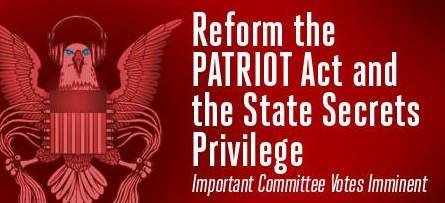

Will The Sun Set On Surveillance? Patriot Act Reform
Recently, the House of Representatives introduced their own USA Patriot Act reform bill, responding to the Patriot Act renewal bill approved by tthe Senate Judiciary Committee. The Electronic Frontier Foundation says it’s a significant improvement over the earlier Senate bill that gave more authority to government spying power. The renewal bill was introduced by House Judiciary Committee Chairman John Conyers, Jr. and others including Civil Liberties Subcommittee Chairman Jerrold Nadler; and Crime, Terrorism, and Homeland Security Subcommittee Chairman Bobby Scott. These bills are proposals that could pave the way to dismantle the broad surveillance and overreaching executive power currently intact.
Kevin Bankston:
- Patriot passed after 9/11/2001 – a lot of the provisions were set to expire in 2005, most of those were renewed, but there were 3 provisions left to expire in the end of 2009.
- Provisions that expanded the government’s power to get orders from the Foreign Intelligence Surveillance Court or any tangible thing, mostly business records. They’re mostly called section 215 orders, under the Patriot Act section 215.
- Roving wiretaps, more accurately roving “john doe” wiretaps. One that doesn’t name target, or address of target. (These sound the like the warrants our founders rebeled against)
- Lone Wolf authority, whereby the government can get wiretapping authorities from the FISA court for people who are unrelated to any foreign power but are suspect to engage in or preparing to engage in crimes related to terrorism.
- The Lone Wolf authority begins to un-moor from the Foreign Intelligence Surveillance Court – it looks to be unconstitutional under the fourth amendment. Most in Obama Administration want this to expire.
- Those are the 3 set to expire. Though worrisome, more worrisome is the National Security Letter Authority, whereby the FBI can write a letter to the court, without suspicion of terrorism, and get bank, telephone and internet records.
- The Justice Act – Senator Feingold / Durman – reform patriot act authorities- including FISA surveillance act passed last summer, which allows foreign surveillance of Americans.
- Also, repealing telecom immunity – Reforming the Patriot Act without addressing FISA is like rearranging deck chairs on the Titanic.
- Unfortunately, Senator Leheay, instead of sponsoring Feingold’s Justice Act reform bill, came out with his own bill that didn’t address the FISA amendment acts at all. That was the bill the Judiciary Committee considered 6 weeks ago.
- The Republicans offered to remove reforms to the already watered down bill, and the Republicans say they got their reforms from the Obama Administration. The Obama Administration is not only falling down on its promise to reform the Patriot Act, it is working through Republicans to make these bills even worse.
- So that’s when the USA Patriot Act reform bill, responding to the Patriot Act renewal bill approved by the Senate Judiciary Committee was proposed.
- We have 2 lawsuits, the first was brought against AT&T in early 2006 based on news reports and whistle blower evidence based on an AT&T technician info, that the NSA had backdoor access to key domestic communication switches.
- Whereby the NSA was sucking up millions upon millions of communications and then sorting out the stuff they were interesting in.
- If the telecom companies aren’t willing to say “NO” when the government secretly comes to them and asks them to break the law, then all of our privacy is in big trouble.
- We sued AT&T and then Congress passed this Telecom Immunity last summer, and our case along with others were dismissed. If the Repealing of the Telecom Immunity passes, our cases will be revived.
- Obama can end the Telcom Immunity right now, and have Attorney General Holder withdraw the certification on which the immunity is based.
Guest – Kevin Bankston, senior staff attorney specializing in free speech and privacy law, was the Electronic Frontier Foundation’s Equal Justice Works/Bruce J. Ennis Fellow for 2003-05. His fellowship project focused on the impact of post-9/11 anti-terrorism laws and surveillance initiatives on online privacy and free expression. Before joining EFF, Kevin was the Justice William J. Brennan First Amendment Fellow for the American Civil Liberties Union in New York City. At the ACLU, Kevin litigated Internet-related free speech cases, including First Amendment challenges to both the Digital Millennium Copyright Act (Edelman v. N2H2, Inc.) and a federal statute regulating Internet speech in public libraries (American Library Association v. U.S.). Kevin received his J.D. in 2001 from the University of Southern California Law Center, and received his undergraduate degree from the University of Texas in Austin.
——————————————————————————–
Afghanistan War, Civil Liberties, Criminalizing Dissent, Extraordinary Rendition, Guantanamo, Habeas Corpus, Human Rights, Iraq War, Military Tribunal, Targeting Muslims, Torture, Truth to Power
Podcast: Play in new window | Download
Host Updates:
Segments This Week:
—-


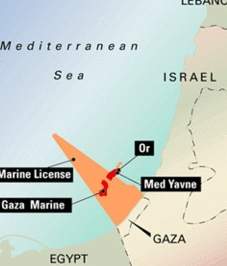
Cynthia McKinney and 20 Peace Activists Return From Israeli Prison
While hoping to deliver humanitarian supplies, a Free Gaza Delegation boat was stopped in International waters by the Israeli Navy earlier this month. Among the nearly 100 U.S. peace activists was former Congresswoman Cynthia McKinney and Irish peace activist and Nobel laureate Mairead Maguire. McKinney and others had been in custody since Tuesday of last week, but could have been released earlier if they signed a document admitting they violated Israel’s blockade. McKinney – “It’s quite unusual for anyone to get a glimpse inside an Israeli prison.”
Cynthia McKinney:
- There were 21 of us on the Free Gaza Boat, they were also bringing boats for Palestinian fisherman in Gaza.
- We embarked on our journey on the Spirit of Humanity boat. You can tell the folks put a lot of love in re-furbishing the boat, with the paint and making it a livable place for a 30 hour journey.
- That boat was destroyed by the Israeli military. They took some kind of huge magnetic item that held the boat suspended and shook it violently.
- It was an unusually calm day, it was absolutely beautiful. But it was 37 hours on the boat including the Israeli Navy intercept. It was nighttime, we were still in International waters and the Israelis threatened us.
- Remember I was on the Dignity when the Israelis rammed it.
- This time, they disabled the GPS, they tried to provide an escort to push us into Israeli waters.
- That tactic didn’t work. They also utilized, something I haven’t seen before, a “wave making machine,” because they shook us up and down.
- The GPS was turned off, communications were disrupted ( small EMP weapon?) I think they were trying to get us into Israeli waters, to make it look like we were off course.
- That did not happen, and they regrouped, and waited for us to enter Gaza territorial waters. That’s when these four speed boats came very quickly. Eight soldiers dressed like ninjas with the ski-mask, they commandeered the boat. Ejected the captain, and took over the steering.
- They put into one room on the boat, told us to sit down and shut up. We were forced to leave the boat with our hands in the air, some were handcuffed.
- The Israeli soldiers were rough with Maguier, she saw them take down one of the women, and she protested, and the soldiers roughed her up with bad language, it was a scene, and the men came to her rescue and those men got handcuffed.
- We got a full body search, we were held by the military for several hours, they transferred us to a detention facility, then to a full prison.Romley Prison. We were mixed in with the prison population. It was amazing, where we were there were young women of African and Asian descent.
- The Israelis actively blocked our effort to meet with our attorneys. We were deported from a country we didn’t intend to enter. The Free Gaza Movement has no intention of stopping.
Guest – former United States Representative and was the 2008 Green Party nominee for President of the United States. McKinney has served as a Democrat in the U.S. House of Representatives from 1993–2003 and 2005–2007, first representing Georgia’s 11th Congressional District and then Georgia’s 4th Congressional District. She is the first African-American woman to have represented Georgia in the House.
—–



Private Contractors in Afghanistan / Pakistan
Since President Obama announced the strategy for Afghanistan and Pakistan in late March of this year, news of troop deployment, drone attacks, and the killing of innocent Afghani and Pakistani civilians is heard nearly every week. Private contractors, mercenaries and the war profiteers in the region rarely make headlines however. One study has concluded that private contractors and mercenaries outnumber US soldiers. Check out – Outsourcing Intelligence in Iraq by Amnesty International and Pratap Chatterjee.
Pratap Chatterjee:
- President Obama has inherited long term contracts in Iraq and Afghanistan, 5-10 year contracts.
- If canceled (contracts) the system will shutdown. For every soldier in Iraq there is a contractor, for every soldier in Afghanistan, there are 2 contractors
- A lot of these people are cooks, janitors, builders, mostly from India, Pakistan, Sri Lanka, Phillipines, Egypt, Bosnia. They do the dull and dirty work nobody else wants to do.
- There’s no draft, so in a volunteer army, the US employs Indians/Bangladeshis for 300 dollars a month, cooking, cleaning. You have contract interrogator types who are making 250 thousand a year.
- There are now 15 thousand prisoners in each country, Iraq, Afghanistan.
- When US goes to interrogate these prisoners, they need translators.
- L3 which is based in New York City, bought up Titan. Titan. under L3 subcontracts interrogators.
- Titan is gone now (by name, same people involved) , but there’s a new company set up by Spider Marx, the guy in charge of intelligence during the invasion of Iraq. Global Linguist Solutions with Dyncorp.
- Contracts are designed to maximize profits. Company such as L3 is paid for 7000 translators, but penalized for having only 6000. 1000 unqualified translators are brought in to war zones.
- Interagency Roundtable Standards
Guest – Pratap Chatterjee, he’s recently returned from Afghanistan. Pratap is a journalist and former executive director of Corpwatch, an Oakland based corporate accountability organization.
—–
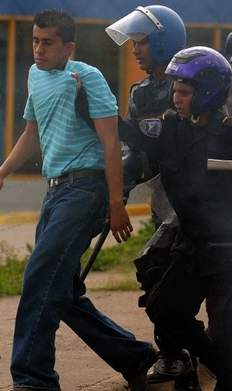
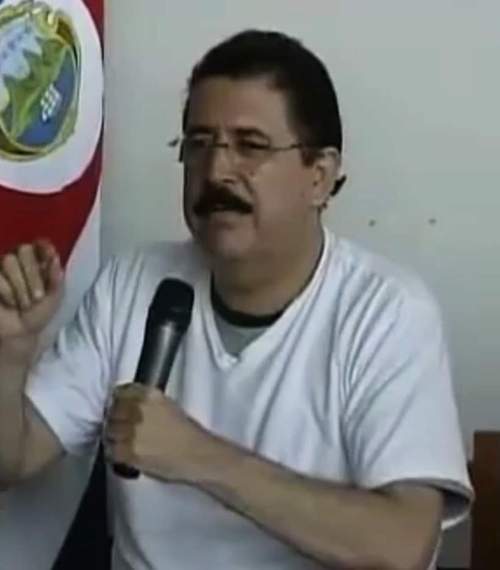
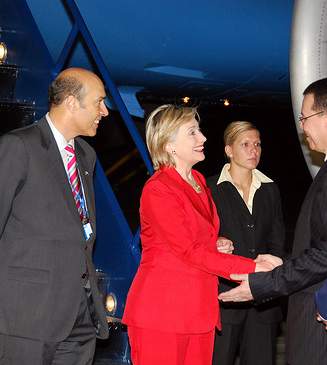
Honduran Coup Tries to Halt Advance of Latin American Left
Two weeks after the Honduran Coup ousted President Manuel Zelaya was prevented from returning to the country. Today we look deeper into the life of Manuel Zelaya, his background among the land_owning class, and his shift as a reform minded leader increasing wages for workers and teachers. Half way through his term Zelaya was inspired by changes in Venezuela, Bolivia and Cuba. He soon had the support of labor unions and social organizations that put him at odds with the corrupt social elite and drug mobsters. Today we talk with author Roger Burbach, about how Zelaya enraged the Honduran elite which led to up to the military coup.
Roger Burbach:
- The news in the main stream press about the coup was to stop Zelaya from re-election.
- Zelaya was not seeking re-election but a constituent assembly on the ballot to draft a new constitution for the country. Similar to Venezuela, Bolivia, and Ecuador.
- Either way, Zelaya could not run for re-election as the media and Honduran elites are portraying.
- The existing Honduran constitution was drafted in 1982, a very repressive constitution, back when John Negroponte was working with the death squads.
- US Sec of State, Hilliary Clinton doesn’t like Zelaya, she didn’t like him when she met him in early June.
- ALBA, an alternative free trade agreement that believes in solidarity measures and economic measures, led by Cuba, Venezuela, Ecuador and Bolivia.
- The US has the strongest military presence in Honduras, than any other Central American country. I would suggest that the US military intelligence knew about the impending coup and did nothing to stop it.
- Why does the US care about Honduras? Strategic military point in Central America, amid three radical governments now rising.
- New radical left leaders such as Chavez, Morales, Correia in Ecuador, Reformist governments of Brazil, Uraguay, maybe El Salvador. The US wants to drive a wedge in there, as with the coup Zelaya was aligned with the radical countries.
- The World Bank and the IMF have all suspended economic support except for the United States.
Guest – Roger Burbach, author of the Pinochet Affair and Director of the Center for the Study of the Americas based in Berkeley, California. Read more articles from Roger Burbach.
—————————————————————————–
Afghanistan War, Civil Liberties, Extraordinary Rendition, Guantanamo, Habeas Corpus, Human Rights, Impeachment, Military Tribunal, Prosecution of the Bush Administration, Targeting Muslims, Torture, Truth to Power
Podcast: Play in new window | Download
Host Updates:
Hear more of the Jim Lehrer Newshour interview with Michael Ratner and Jeffrey Smith
—-

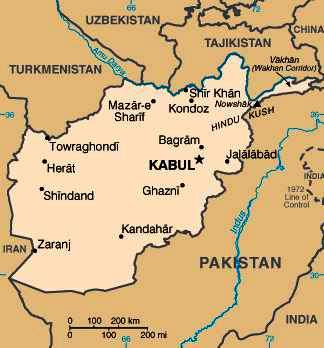

US To Escalate War in Afghanistan
Nearly 15 thousand US troops have been recently committed to Afghanistan, and progressive think tanks are pushing the Obama Administration to send an additional 17 thousand which would bring the total to 70 thousand troops. Expansions are being built onto the Bagram prison, as mass incarceration is expected. Progressive Think Tank Tells Obama to Escalate
Tom Hayden:
- Global Phoenix Program – in testimony last week, 10 – 12 years overall to win the Afghanistan War. Two years of hard fighting, a couple extra billion dollars a month. I think they plan to send the troops into Southern Afghanistan and to take on the Taliban or who ever the local resistance forces are.
- I think people need to buckle their seat belts for a war. We’re going to have a war in Afghanistan that’s soft on torture. Where are the human rights groups, we’re sending US troops into a dirty war that incarcerates without evidence, tens of thousands of people.
- Center for American Progress – I’m disappointed in them, they’re usually good liberal democrats. Now they’ve come out for a military surge in Afghanistan.
- Obama has narrowed it down to one goal. Can we prevent Al-Quaeda from getting a base area from which they can attack Europe or the United States. The more we go into Pakistan with the predators and drones, the more Pakistan turns against us. It becomes a recruiting tool for more militants.
- The other way to go would be to address the grievances of the Muslim world that give al-queda some support base.
- 1. The US unconditional support for Israel
- 2. 150 thousand troops still in Iraq
- 3. US troops in countries where Muslims control their own oil.
- It’s all laid out in a book by Michael Scheuer -Imperial Hubris: Why the West is Losing the War on Terror
- I work very closely with Robert Greenwald at Brave New Foundation. Getting Afghanistan Right. There’s a huge sectarian problem in the anti-war movement. Nonetheless there’s always a peace and justice community in every city I go to.
- One wonders what it will take for someone in the House or Senate to stand up and say I want to lead the anti-war movement.
Guest – Political and social activist Tom Hayden joins us today to fill in the detail and time line in this escalation of war. Tom is also the author of Ending The War In Iraq.
—–
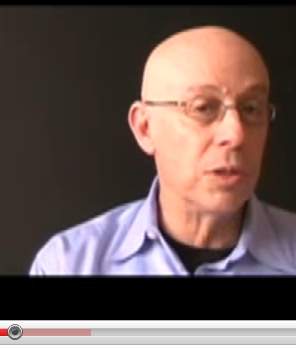


US War in Afghanistan and Pakistan – Follow Up
As tensions rise between Pakistan and the United States, President Obama recently mentioned that stability in Afghanistan depends on what will happen in Pakistan. The United States and Pakistan have been allies in their interest to purge Islamist extremism, however the two countries are now embroiled in miscommunication, drone wars and mistrust that is centered around a 10 billion dollar military aid fund. Analysts say the Obama administration is asking a lot from a fragile Pakistani government that has been in power for now only a year.
Michael Schwartz:
- President Obama’s speech – on Pakistan, tells the whole story. You have to unpack it.
- Not a lot of people have read the speech, Obama starts by saying a campaign against extremism will not succeed by bullets and bombs alone then he launches into the peaceful side of American policy.
- The US is planning to make Pakistan another outpost of globalization creating an opportunity for multinational corporations to invest into a local economy and basically take it over.
- What they’re saying is they’re trying to execute a policy to bring Pakistan into full economic domination of American capitalism. – a globalized version of American capitalism. The military aspect of this is only a part to secure the farthest reaches of the middle east, the part of instability.
- Obama’s speech is filled with being “adminstratively involved with Afghanistan and Pakistan.
- The delivery is profound American presence. American enterprises, adminstrators, experts, trainers, a kind of colonial presence, then on the other side of this, an integration into the global system.
- Private multinational enterprises will build schools, infrastructure.
- This same neo-liberal process has ocurred in Africa, South America and what we know about this process is that there is an extraction of large profits by these multinational corporations. The Taliban would set up a social organization that is incompatible with the globalized agenda, so you can see this as a counter-insurgency maneuver.
- The military part of this is that they’re not going to be able to do this in a peaceful way, they’re going to have to conquer the area.
- In a period of two years with more than 90 drone attacks have killed 5000 innocent Pakistanis. They want to kill civilians
- The sense that people are waiting to see whether Obama and Congress move to escalate the war is a big part of the lack of energy in the anti-war movement.
- These are colonial wars, because the United States seeks to have a real administrative hold over these countries.
- The United States can’t withdraw from Afghanistan because it borders on the three Caspian Sea oil companies. Those oil companies are gravitating toward China and Russia in the grand scheme of things.
- Regarding the Poppy agriculture in Afghanistan, the Taliban had gotten rid of the poppies, since the US had invaded Afghanistan, the poppy agriculture has come backWe talk today with Michael Schwartz about the current relations amid Pakistan, the United States and the war in Afghanistan.
- $1.5 billion in direct support to the Pakistani people every year over the next five years – resources that will build schools, roads, and hospitals, and strengthen Pakistan’s democracy. I’m also calling on Congress to pass a bipartisan bill co-sponsored by Maria Cantwell, Chris Van Hollen and Peter Hoekstra that creates opportunity zones in the border region to develop the economy and bring hope to places plagued by violence. And we will ask our friends and allies to do their part – including at the donors conference in Tokyo next month.
Guest – Michael Schwartz is a professor of Sociology and Faculty Director of the Undergraduate College of Global Studies at Stony Brook University, has written extensively on popular protest and insurgency as well as on American business and government dynamics. His books include the recently published War Without End.
———


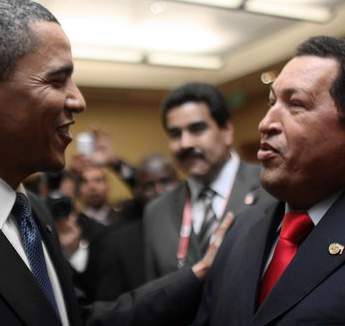
Cuba, South America and the Summit of the Americas
Earlier this year we spoke with film maker and Cuban scholar Saul Landau about the Cuban 50th anniversary and its significance. Now Saul describes the changes we can expect with regard to Cuban / US relations from the Obama Administration. The discussion also covers some detail of the recent talks at the Summit of the Americas in Trinidad.
Saul Landau:
- Obama has allowed Cuban Americans to travel freely to Cuba and allowing more loose travel regulations as well.
- What can Cuba really do except to promise to stop hitting the US in the fist with its face.
- What did Cuba do to the United States to merit 50 years of punishment?
- I don’t think Cubans are prepared to have 100 thousand Spring Breakers descend upon Havana.
- Nor are they prepared for American investors with big wads of cash, trying to buy up everybody and everything that they see.
- I think Obama is one of the cleverist, winsome, brightest people I can ever imagine, he’s a hard man to resist. But you have to get behind his optimistic rhetoric, his humility, his smile and his handshake and remember that prize fighters also shake hands before the first round.
- Cuba will have a lower profile in the future, we’ve seen the most publicity we’re going to see for quite a while now.
- I think things are little better, they’re a little quieter and less hostile. I think Cuba has its own problems that it really has to deal with
Guest – Saul Landau is an internationally known author, commentator, and film maker on foreign and domestic policy issues. Landau’s most widely praised achievements are the over forty films he has produced on social, political and historical issues, and worldwide human rights, for which he won the Letelier-Moffitt Human Rights Award, the George Polk Award for Investigative Reporting, and the First Amendment Award, as well as an Emmy for “Paul Jacobs and the Nuclear Gang.” In 2008, the Chilean government presented him withthe Bernardo O’Higgins Award for his human rights work. Landau has written fourteen books including a book of poems, “My Dad Was Not Hamlet.” He received an Edgar Allen Poe Award for Assassination on Embassy Row, a report on the 1976 murders of Chilean Ambassador Orlando Letelier and his colleague, Ronni Moffitt.
He is Professor Emeritus at California State University, Pomona. He is a senior Fellow at and Vice Chair of the Institute for Policy Studies.
————————————————————-
.
Afghanistan War, CIA Sponsored Terror, Civil Liberties, Extraordinary Rendition, Guantanamo, Habeas Corpus, Human Rights, Iraq War, Military Tribunal, Targeting Muslims, Torture, Truth to Power
Podcast: Play in new window | Download
Host Updates
———
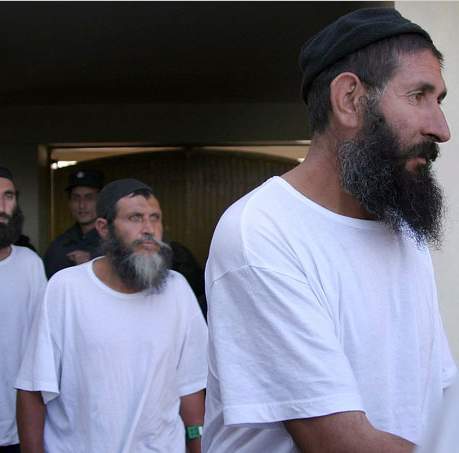
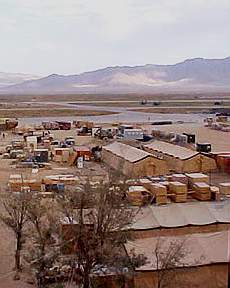

Some Prisoners at Bagram AFB, Afghanistan May Challenge Detention
Last week a federal judge ruled that some prisoners held by the US military at Bagram Air Base prison in Afghanistan have the right to challenge their imprisonment. There are more than 600 people being held at the Bagram prison in Afghanistan without charges.
The federal ruling does not apply to prisoners captured on the battlefield in Afghanistan, citizenship and location of the capture will determine if prisoners could challenge their detention in court.
Tina Foster, the executive director of the International Justice Network said that the Bagram ruling meant that changes to the Bush detention policies would go beyond merely closing Guantánamo and extend “to any place where the United States seeks to hold individuals in a legal black hole.”
Attorney Tina Foster:
- Filed writ of Habeas Corpus for the 4 detainees to challenge their detentions.
- Judge Bates: The US cannot manipulate the jurisdiction of the courts by holding people deliberately in places where the courts have not traditionally exercised jurisdiction.
- Bagram is the main military base in Afghanistan, it was an old Soviet air hangar, that’s where they’ve established a prison.
- 600 in Bagram prison.
- There are other coalition forces at Bagram AFB with military presence, but as “guests” of the US.
- US Government: Unlike Guantanamo, Bagram is in the middle of a war zone.
- Bagram was the original Guantanamo, a lot of the people at Guantanamo first spent time at Bagram.
- A few years ago, working with you Michael (Ratner) one of the happy tasks I had, was to travel all over the world, contacting the families of the detainees at Guantanamo. It also became clear that there were people locked up in other places besides Guantanamo.
- Shockingly,the Obama Administration has adopted the Bush Administration policy on Bagram. All of their legal arguments, all of their secrecy, still deciding not to disclose any information.
- What has been different than the Bush Administration, is that when Obama signed orders to close Guantanamo, he set up a task force to look at detainee policy more broadly. That report is due in July.
Guest – Tina Monshipour Foster is the founder and Executive Director of the International Justice Network (“IJN”), and serves as lead counsel in several of IJN’s legal cases on behalf detainees imprisoned without charge at Bagram Airfield in Afghanistan. Ms. Foster’s work on behalf of prisoners and other victims of human rights violations has been featured in major media outlets in the US and abroad, including The New York Times, Wall Street Journal, Washington Post, Harper’s Magazine, Smithsonian, Al Jazeera channel, and others.
From November 2004 to May 2006, Ms. Foster was an attorney with the Center for Constitutional Rights (“CCR”) and Counsel for CCR’s Guantanamo Global Justice Initiative. Prior to joining CCR, she was a litigation associate at Clifford Chance US LLP and previously served as a law clerk for Hon. Delissa A. Ridgway at the United States Court of International Trade. Ms. Foster is a graduate of Cornell Law School, where she was an editor of the Cornell International Law Journal.
——
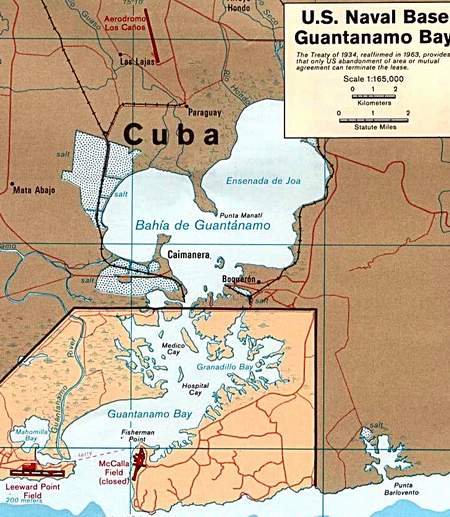
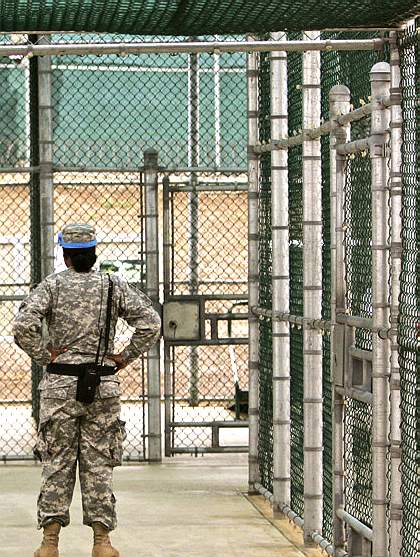
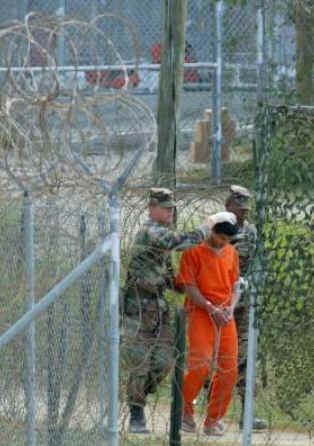
Guantanamo Bay Prison, Update
Today we talk with Emi MacLean, staff attorney for the Center for Constitutional Rights to get an update, an impression of where things stand with Guantanamo Bay prisoners, their status of Habeas Corpus, and the Obama administration’s position. There are also 17 innocent Chinese muslims called Uighurs asking, again for their release. Our guest Emi MacLean has worked with the Guantánamo Global Justice Initiative and other forms of executive detention, including secret prisons and transfers to torture.
Attorney Emi MacLean:
- More Guantanamo prisoners have left in the last weeks of the Bush Administration then the first 100 days of the Obama Administration.
- 240 people at Guantanamo right now. Approximately, 20 Guantanamo prisoners will face any prosecution.
- We’ve held more than 775 people at Guantanamo
- The people at Guantanamo right now are not there because of some greater threat assessment, they are there because of their country of nationality.
- Almost all the Europeans were released early on, almost all the Yemenis remain behind.
- A federal district judge ordered the release of the Uighers last October, the Bush Administration challenged the release.
- When we asked the Obama Administration to drop the challenge, they have yet to do so.
- I remember seeing civil liberties groups celebrating the executive order calling for the closure of Guantanamo in one year. But nothing has really changed for the reality of those men in Guantanamo. This is a consistent devaluation of the life of the men imprisoned there.
- We’ve seen the Obama Administration lawyers refuse to back away from the Bush Administration’s position on states secrets.
- It’s very hard for people to give up power.
- What makes our work difficult, is that it usually takes a couple of weeks for our communications to clear. The communication between counsels on what the Guantanamo conditions are.
- The Obama Review Team determined that the conditions at Guantanamo complied with Geneva Convention, which was certainly not what we were hearing and certainly not what we were seeing.
- The overwhelming majority of the men at Guantanamo were still in brutal conditions of solitary confinement and still reporting severe psychological and religious abuses at Guantanamo.
- No middle ground, these men should be tried or released.
Guest – Attorney Emi MacLean has worked at the Center for Constitutional Rights (CCR) with the Guantánamo Global Justice Initiative (GGJI) since June 2006. She works on issues related to Guantánamo and other forms of executive detention, including secret prisons and transfers-to-torture. She helps coordinate the pro bono attorneys representing the hundreds of men still detained at Guantánamo and supports CCR’s direct representation of a number of current detainees.
In addition, Emi is involved in civil actions brought on behalf of former prisoners released from Guantánamo (Rasul v. Rumsfeld and Celikgogus v. Rumsfeld) and actions under the Freedom Of Information Act (FOIA) challenging the government’s refusal to disclose information about the NSA’s warrantless surveillance of Guantánamo attorneys (Wilner v. NSA) and the CIA’s secret detention program (Amnesty International, CCR, et al. v. CIA). In addition to direct litigation, Emi’s work with CCR includes legislative and international advocacy.
Emi has previously worked or volunteered with the United States Senate Judiciary Committee, Center for Justice and International Law (CEJIL), Human Rights First, and the American Civil Liberties Union (ACLU). Prior to law school, Emi worked with South Africa’s National Association of Democratic Lawyers (NADEL), and Médecins Sans Frontieres (Doctors without Borders). Emi graduated magna cum laude from Harvard College and Georgetown University Law Center.
———————–
Extraordinary Rendition, Guantanamo, Habeas Corpus, Human Rights, Supreme Court, Surveillance, Targeting Muslims, Torture, Truth to Power
Podcast: Play in new window | Download
Updates:
——-
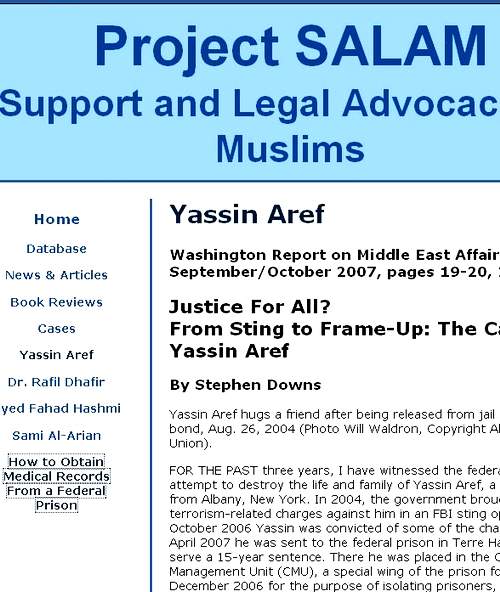
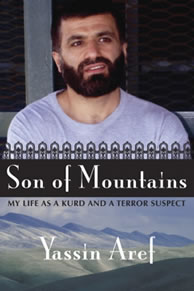
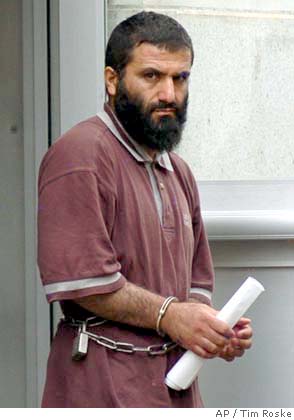
Steve Downs: The Yassin Aref Story and Muslim Database, Project Salam
Imam Yassin Aref is among numerous Muslim men in the United States who were targeted by the FBI framed and wrongly convicted. Aref is Iraqi Kurd who came to Albany, New York in 1999 as refugee from Kurdistan. He later became the leader at a local mosque. After 9/11 the FBI began to illegally wiretap and eavesdrop on the mosque and Yassin. It was later reported in the New York Times that these wiretaps were conducted without court approval. As retired attorney Stephen Downs explains, Yassin is one of 400 in a database site, Project Salam that keeps track of Muslim men in United States prison.
Stephen Downs:
- Whatever it was that triggered suspicion, the FBI decided they wanted to convict Yassir
- So, they set up sting operation, it was run by a guy who was convicted of a number of felonies.
- Yassin was convicted and sentence to 15 years in communication management units at Terra Haute Prison, Indiana,
- They’re trying to seal them off from the prison population and society at large.
- They’re being treated like they have some horrible disease and would infect anyone that they’d come in contact with.
- I have a suspicion that the Bush Administration was thinking of closing Guantanamo and I can’t help thinking that because the size of this place is about right, that they’d consider transferring prisoners there, but that didn’t happen.
- There is room for 400 prisoners, there are 50 or 60.
- We began to realize that all over the country there were groups that were forming around certain people in their communities that had been simply, locked away.
- So, we got together at Albany Law School and decided to set up a database of all the Muslims in the country who had been improperly gone after. They were under suspicion from the government for some reason.
- We just wrote to President Obama and Attorney General Holder regarding what has happened under the Bush Administration in that we change the paradigm in how we prosecute people.
- Now we’re going to be writing letters about specific cases. We got 900 people to sign the first letter.
- We are asking people to adopt a defendant.
- We have about 400 Muslims in the database. We can’t say that all 400 are innocent. Some people are overcharged.
- We appealed and lost. There was a secret appeal and a top secret brief that even the prosecutor wasn’t allowed to see.
- The appellate decision was harsh, it either mischaracterized what we had to say or brushed them aside immediately.
- We thought it was a victory because the standard is a 30 year prison sentence, based on the all the “enhancements” that they added.
Guest – Stephen Downs, a retired New York State attorney and a volunteer attorney for the Yassin Aref case.
———————————————–
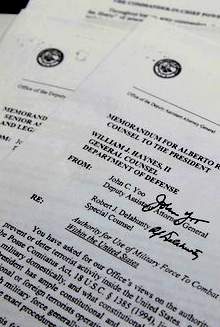
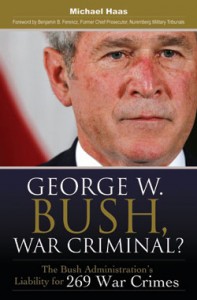
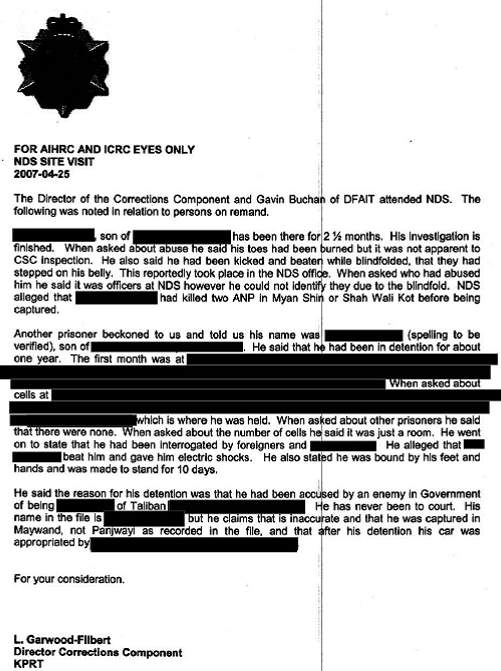
George W. Bush, War Criminal ? by Michael Haas
In the book titled George W. Bush, War Criminal? author Michael Haas counts 269 war crimes that the Bush Administration are liable to be prosecuted for. He itemizes each war crime into a specific category of four classes, such 36 war crimes committed in the conduct of war, 175 war crimes committed in the treatment of prisoners and so on. This book carefully documents the war crime evidence, making it quick work to investigate how George W. Bush, the military officers under his command and the staff in his administration can be brought to justice.
Michael Haas:
- The illegality of the war.
- The misconduct during war, militarily, the mistreatment of prisoner.
- The misgovernment of the occupations of Iraq and Afghanistan.
- The decision to indiscriminately bomb without giving proper notice to the civilian population and then the use of illegal weapons such as Daisy Cutters, White Phosphorous and Depleted Uranium Weapons which not only affected the civilian population in Iraq, but the American soldiers who came in to occupy.
- I have a table in the book indicating 40 international agreements that are war crimes treaties.
- The most prominent to begin with is the Red Cross Convention of 1864 and then going on to the Hague Conventions, the Geneva Conventions before and after WWII and then the subsequent conventions against torture and forced disappearances.
- Any kind of torture is illegal involving prisoners of war.
- When they couldn’t get information out of Guantanamo prisoners, the Geneva Convention orders to not torture prisoners was countermanded to try other techniques by then Secretary of Defense Donald Rumsfeld – by executive order through George Bush.
- Most of the war crimes are from the mistreatment of prisoners, because the Geneva Convention is very detailed and specific about what cannot be done.
- The Bush executive order details what had happened and in fact is an admission of abuse.
- Extraordinary renditions, to send someone to another country to be tortured is itself a war crime.
- War crimes are ongoing now, they’re happening under the Obama Administration.
- If we can’t focus on now, which apparently isn’t happening, then we can’t learn lessons from the past.
- At Guantanamo, the following war crimes are taking place: Failure to transmit legal documents to prisoners, secret judicial proceedings, refusal to cooperate in investigations and prosecution of torturers. The wreckless endangerment of health in prison, the violation of medical ethics, that is the force feeding. Indefinite imprisonment of children, cruel treatment, that is the beatings after force feedings.
- These are what I’ve counted to be 22 war crimes since the inauguration of President Obama.
- The thesis of the book is to have a truth commission on the war crimes published in this book so that people know, the public what is a war crime, what is not a war crime.
- Some of the war crimes are only heresay right now, so we need sworn testimony, though some of the war crimes are signed by George W Bush. www.uswarcrimes.com
- I was writing a textbook on human rights, I’m a scholar, political scientist, while I was reading the Geneva Conventions to summarize them for the purpose of a chapter, I was also reading the newspaper, I realized that the violations of the Geneva Conventions, and reading them item by item – its very dry reading, but I can make it much more interesting.
- I quit my job as a professor, and relentlessly began getting up at 5 AM and going to bed at 1AM day after day to finish this book, so it would be coming out just a few days before the inauguration of the new president.
Guest – Michael Haas, has written more than 30 books on human rights, he is currently Professor Emeritus of Political Science at the University of Hawaii and the Chairman of the International Academic Advisory Board of the University of Cambodia. He played a role in stopping the secret funding of the Khmer Rouge by the administration of President George H. W. Bush. He has taught political science at the University of London, Northwestern University, Purdue University, and the University of California, Riverside.The argument is that all 4 types of war crimes were violated with great impunity by George W Bush and members of his administration.
——————————————-


































